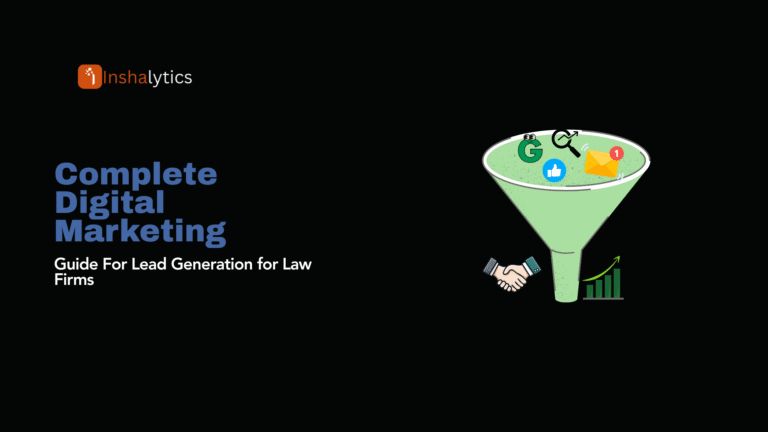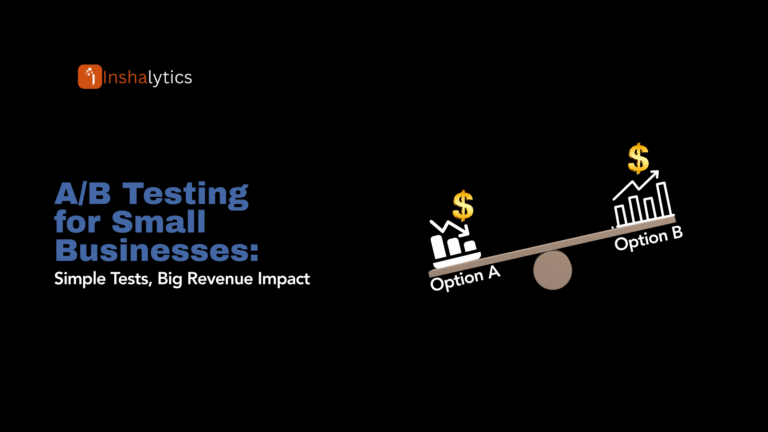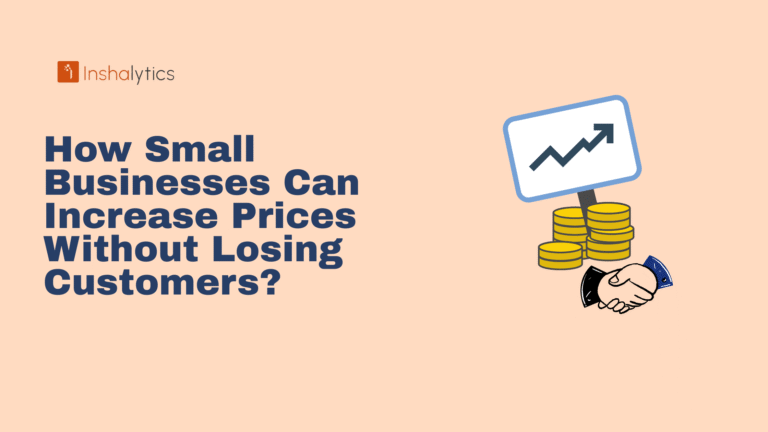Running a wedding business means juggling countless details from initial client inquiries to final payments. Whether you’re a photographer capturing precious moments, a florist designing centerpieces, or a venue manager coordinating multiple events, the administrative workload can quickly become overwhelming. This is where booking and contract management systems transform how wedding professionals operate.
These specialized software platforms streamline everything from lead tracking to payment collection, allowing you to focus on what you do best: creating unforgettable wedding experiences. Let’s explore how the right system can revolutionize your wedding business.
Navigate This Post
What Are Wedding Business Management Systems?
Wedding business management systems are comprehensive software platforms designed specifically for event professionals. Unlike generic business tools, these systems understand the unique workflows, challenges, and requirements of the wedding industry.
Core Components of Wedding Management Software
At their foundation, these systems integrate several critical business functions into one unified platform:
Client Relationship Management (CRM) serves as your command center, storing all client information, communication history, and project details in one accessible location. Instead of searching through emails or paper files, you’ll have instant access to every conversation and document.
Booking and scheduling capabilities prevent double-bookings and give you real-time visibility into your availability. Whether you manage one venue or multiple event spaces, the calendar view ensures you never accidentally overcommit.
Digital contract management eliminates printing, scanning, and chasing signatures. Clients can review, sign, and return contracts from any device, while you maintain legally binding documentation automatically.
Payment processing transforms how you collect money. Set up automated payment schedules, send reminders, and accept credit cards or ACH transfers directly through the platform.
Proposal generation lets you create stunning, professional proposals in minutes rather than hours, complete with pricing breakdowns, service descriptions, and visual elements that win clients.
Who Benefits from Booking and Contract Systems?
While these systems serve the entire wedding industry ecosystem, certain professionals find them particularly transformative:
Wedding venues and event spaces handle multiple bookings simultaneously, manage complex catering orders, coordinate with numerous vendors, and track rental inventory. Systems like Tripleseat and Planning Pod are built specifically for these operational complexities.
Wedding photographers need to manage long booking timelines, deliver galleries, handle multiple packages, and maintain consistent client communication over many months. Platforms like Studio Ninja and HoneyBook cater to these specific workflows.
Florists deal with intricate recipe creation, stem counting, vendor ordering, and seasonal inventory challenges. Solutions like Curate and Details Flowers Software address these unique pain points.
Wedding planners and coordinators orchestrate multiple vendors, timelines, budgets, and client expectations simultaneously. They require robust project management capabilities alongside standard booking features.
Essential Features in Wedding Booking Software
Not all wedding management systems are created equal. Understanding key features helps you identify which platform aligns with your business needs.
Lead Management and CRM Capabilities
Converting inquiries into bookings requires systematic follow-up. Quality CRM features capture leads from your website through embedded forms, automatically routing them into your system. You can then tag, categorize, and track each lead through your sales pipeline.
The best systems include lead scoring, automated follow-up sequences, and reminders, ensuring no potential client falls through the cracks. You’ll see at a glance which leads are warm, which need nurturing, and which are ready to book.
Online Booking and Scheduling Tools
Modern clients expect instant gratification. Online booking capabilities let prospects check your availability and reserve dates without back-and-forth emails. Some systems even allow clients to select packages, sign contracts, and make deposits in one seamless flow.
Calendar synchronization with Google Calendar or Outlook keeps your schedule consistent across platforms. Multi-user access means your entire team sees real-time updates, preventing communication breakdowns.
Digital Contract Creation and E-Signatures
Gone are the days of printing contracts, scanning signatures, and filing paper copies. Digital contract features include customizable templates that auto-populate with client information, eliminating manual data entry and reducing errors.
E-signature functionality is legally binding in most jurisdictions when properly implemented. Clients appreciate the convenience of reviewing and signing contracts immediately, rather than printing, signing, scanning, and emailing back—a process that often causes delays.
Payment Processing and Invoicing
Cash flow makes or breaks small businesses. Integrated payment processing means clients can pay deposits and balances directly from invoices with a single click. You eliminate the awkwardness of chasing payments and reduce late payments significantly.
Features to look for include automated payment reminders, customizable payment schedules (deposit plus installments), support for multiple payment methods (credit cards, ACH, PayPal), and detailed payment tracking with accounting software integration.
Proposal Generation and Customization
First impressions matter tremendously when prospects are comparing multiple vendors. Professional proposal tools let you create visually stunning documents featuring your branding, high-quality images, detailed service descriptions, and clear pricing breakdowns.
The ability to include drag-and-drop design elements, Pinterest inspiration boards (for florists and planners), and customizable packages helps clients visualize their event while understanding exactly what they’re purchasing.
Client Portal and Communication Tools
Centralized communication keeps everyone on the same page. Client portals provide a dedicated space where couples access contracts, invoices, questionnaires, and project documents anytime. This reduces email volume and ensures important information doesn’t get lost in crowded inboxes.
Built-in messaging, automated email sequences, and SMS notifications keep clients informed throughout the planning process. Some platforms even support two-way texting directly from the system.
Workflow Automation and Task Management
Automation is where these systems truly shine. Once you book a client, automated workflows can trigger a series of actions: sending a welcome email, requesting questionnaire completion, scheduling payment reminders, and creating task lists for your team.
This ensures consistency in your client experience while dramatically reducing the mental load of remembering every step for every client. You can create different workflows for different service types—weddings versus corporate events, for example.
Systems by Wedding Professional Type
Different wedding professionals have distinct needs. Let’s examine solutions tailored to specific industries.
Booking Software for Wedding Venues and Event Spaces
Venue management systems handle extraordinary complexity. You’re coordinating multiple event spaces, managing catering orders with detailed menu selections and dietary restrictions, tracking rental inventory like chairs and linens, and scheduling setup and breakdown teams.
Leading platforms like Planning Pod offer comprehensive venue calendars showing availability across all spaces, banquet event order (BEO) generation for catering coordination, floor plan design tools, and detailed reporting on booking revenue and space utilization.
Tripleseat specializes in sales and catering operations with features for lead capture from website inquiries, automated email marketing campaigns, menu and package management, and integration with accounting systems like QuickBooks.
These systems often include both front-of-house features (client-facing proposals and booking) and back-of-house operations (kitchen orders, staff scheduling, inventory tracking).
Contract Management for Wedding Photographers
Photography businesses operate on extended timelines booking a year in advance is common. Photographer-specific systems address these unique challenges.
Studio Ninja offers an end-to-end workflow from inquiry to gallery delivery, including customizable quote and package builders, automated booking confirmations, online contract signing, payment scheduling with automatic reminders, and questionnaire workflows for gathering shoot details.
HoneyBook serves photographers with beautiful, branded proposals combining contracts and invoicing, workflow automation for consistent client experiences, and mobile apps for managing business on location.
The best photography systems integrate with gallery platforms like ShootProof or include native gallery delivery, allowing you to manage the entire client journey in one place.
Florist Business Management Systems
Floral design involves unique challenges: recipe creation for arrangements, stem counting for accurate ordering, vendor coordination across multiple suppliers, and managing perishable inventory.
Curate has become popular among wedding and event florists for its intuitive proposal creation with drag-and-drop design elements, Pinterest integration for inspiration boards, automated stem counting from recipes, vendor ordering with shopping lists, and recipe libraries for reusing popular arrangements.
Details-Flowers Software connects florists directly with suppliers, providing real-time inventory availability, automated cost calculations as you design, profit margin tracking, and electronic contract signing with integrated payments.
These specialized tools save hours previously spent in spreadsheets calculating stems and costs, while reducing costly ordering errors.
Solutions for Wedding Planners and Coordinators
Wedding planners need robust project management alongside standard booking features. They’re juggling multiple vendors, complex timelines, detailed budgets, and diverse client communications.
Aisle Planner combines CRM and lead management, a full event planning suite with timelines and checklists, vendor management tools, budget tracking, and CAD-based floor plan design.
HoneyBook also serves planners well with its comprehensive client flow management, automation capabilities for repetitive tasks, and customizable templates for various planning scenarios.
The ability to collaborate with clients through shared portals, coordinate with vendors, and maintain detailed project notebooks makes these platforms indispensable for professional planners.
Catering and Banquet Management Software
Caterers require detailed menu management, dietary restriction tracking, equipment and staffing coordination, and integration with kitchen operations.
EventPro offers extensive catering-specific features, including recipe and menu builders with cost tracking, beverage management, equipment rental tracking, staffing schedules, and comprehensive event timelines.
Many venue management systems also include robust catering modules since venues and catering operations often overlap.
Top Wedding Booking and Contract Management Platforms
With dozens of options available, here are the leading solutions across categories:
All-in-One Solutions
HoneyBook serves photographers, planners, florists, and other creative professionals with beautiful design, intuitive interface, comprehensive automation, and strong client portal features. Pricing starts around $16-42/month, depending on plan.
Planning Pod offers extensive functionality for venues, caterers, and event planners with powerful booking calendars, proposal and contract management, invoicing and payments, and detailed reporting. Pricing is typically $39-149/month.
17Hats provides solid all-in-one capabilities, including lead capture and CRM, automated workflows, contract and invoice management, and project timelines. Starting around $23/month.
Specialized Venue Management Systems
Tripleseat focuses on venue sales and catering with excellent lead management, comprehensive menu and package tools, strong reporting and analytics, and established market presence in the hospitality industry.
EventPro delivers enterprise-level capabilities for larger venues with extensive customization options, on-premise or cloud deployment, and modules for venue booking, catering, and full event management.
Photography-Specific CRMs
Studio Ninja is designed by photographers for photographers with an exceptionally user-friendly interface, complete workflow automation, mobile apps for iOS and Android, and competitive pricing starting around $25/month.
Pixieset combines gallery delivery with business management, including online galleries with selling capabilities, integrated booking and contracts, branded client experience, and a free tier available.
Florist Software Options
Curate is the market leader for wedding and event florists with beautiful proposal generation, sophisticated recipe and stem counting, vendor ordering automation, and a growing user community. Pricing typically $99-299/month.
Details Flowers connects florists with suppliers while providing business management tools, real-time inventory checking, accurate cost calculations, and profit tracking built specifically for floral businesses.
Comparing Wedding Management Software Solutions
Choosing the right platform requires evaluating several factors beyond features.
Pricing Models and Cost Considerations
Wedding management software typically uses monthly or annual subscription pricing. Monthly plans range from $15-300+, depending on features and business size. Many offer discounts for an annual payment.
Consider the total cost of ownership: while a platform might charge $100/month, if it saves you 10+ hours monthly and helps you book even one additional client per year, the ROI is significant.
Some platforms charge transaction fees on payments processed (typically 2.5-3% for credit cards), while others build payment processing costs into higher subscription fees. Calculate which model benefits your payment volume.
Free trials are standard typically 14-30 days. Use this time to build real workflows and test with actual clients rather than just exploring features.
Integration Capabilities
Your wedding management system shouldn’t exist in isolation. Key integrations include:
Payment processors like Stripe, Square, PayPal, or direct credit card processing determine how easily you collect money.
Accounting software connections to QuickBooks, Xero, or FreshBooks automate financial record-keeping and reduce double-entry.
Calendar synchronization with Google Calendar and Outlook keeps your schedule consistent across platforms.
Email marketing integration with Mailchimp or Constant Contact helps nurture leads and past clients.
Gallery platforms for photographers need seamless connections to ShootProof, Pixieset, or similar services.
Mobile App Availability and Features
Wedding professionals rarely sit at desks all day. Mobile apps let you respond to inquiries during commutes, check schedules between events, send invoices from venues, and access client information anywhere.
Evaluate whether mobile apps offer full functionality or just viewing capabilities. The best apps let you capture new leads, communicate with clients, and complete essential tasks on the go.
User Experience and Learning Curve
Beautiful interfaces don’t always equal usability. During free trials, test how easily you can complete common tasks: creating a proposal, sending a contract, processing a payment, and setting up automation.
Some platforms prioritize simplicity with less customization, while others offer extensive capabilities requiring more setup time. Consider your technical comfort level and available time for implementation.
Customer support quality varies dramatically. Look for platforms offering live chat, phone support, comprehensive knowledge bases, video tutorials, and active user communities where you can learn from peers.
Benefits of Using Booking and Contract Management Systems
Beyond specific features, these systems deliver transformative benefits to wedding businesses.
Time Savings Through Automation
Manual administrative tasks consume hours better spent on creative work or client relationships. Automated workflows eliminate repetitive actions: sending standard emails, creating task lists, scheduling payment reminders, and following up with prospects.
Users commonly report saving 5-15 hours weekly after implementing management systems. That’s potentially 500+ hours annually equivalent to hiring a part-time assistant.
Improved Cash Flow and Payment Collection
Late payments stress small businesses. Automated payment reminders significantly reduce collection time. Online payment options remove friction clients pay immediately rather than waiting to write checks.
Many users report reducing average collection time from 30+ days to under 10 days, dramatically improving cash flow and reducing awkward payment conversations.
Enhanced Client Experience and Communication
Modern clients expect professional, streamlined interactions. When prospects receive beautiful proposals within hours instead of days, when clients can sign contracts and pay deposits immediately, and when automated emails keep everyone informed, satisfaction increases dramatically.
Client portals providing 24/7 access to documents and information reduce anxiety and email volume, while maintaining organized communication histories ensures nothing gets lost or forgotten.
Reduced Administrative Burden
Paper-based systems or scattered digital tools create constant stress: searching for documents, recreating proposals from scratch, tracking payments across multiple systems, and remembering all the details for every client.
Centralized platforms eliminate this chaos. Everything lives in one place, accessible instantly, with search and filtering capabilities that make finding any information effortless.
Better Organization and Reduced Errors
Human memory fails, especially when juggling multiple clients. Automated reminders ensure you never miss important deadlines. Template-based documents reduce errors from manual data entry. Standardized workflows ensure consistent service delivery.
The risk of double-booking venues, forgetting to send contracts, or miscalculating pricing drops dramatically when systems handle routine operations.
Implementation and Getting Started
Transitioning to management software requires planning but delivers rapid returns.
How to Choose the Right System for Your Wedding Business?
Start by listing your biggest pain points. Do you struggle with lead follow-up? Spend too much time creating proposals? Have difficulty collecting payments? Prioritize platforms addressing your specific challenges.
Consider your business type and size. Solo photographers have different needs than multi-venue operations. Ensure the platform scales with your growth plans.
Take advantage of free trials for your top 2-3 candidates. Build actual proposals, test automation, and evaluate which interface feels most intuitive for your workflow.
Read recent reviews from professionals in your specific field. Photographer reviews of venue software won’t reflect your needs, so seek feedback from similar businesses.
Migration from Spreadsheets and Manual Processes
Don’t try to migrate everything immediately. Start with new clients while gradually transferring active projects. Most platforms offer import capabilities for contact lists, though you may need to manually rebuild templates and workflows.
Many vendors provide onboarding support, walking you through setup and configuration. Take advantage of these resources rather than struggling alone.
Build templates during slower periods when you have time to perfect them. Once created, they’ll save hours on every future project.
Training Your Team on New Software
If you have staff or contractors, budget time for training. Create standard operating procedures documenting common workflows. Record screen-share videos showing how to complete frequent tasks.
Most platforms offer training webinars, video libraries, and documentation. Share these resources with team members and schedule practice sessions where everyone completes sample tasks together.
Start with core features before exploring advanced capabilities. Master proposals, contracts, and payments before diving into complex automation.
Customizing Templates and Workflows
Generic templates work initially, but customization creates competitive advantages. Invest time creating branded proposals, detailed contracts protecting your business, and workflows reflecting your unique process.
Many platforms include template libraries created by other users. Use these as starting points, modifying them for your specific needs rather than building from scratch.
Test workflows with sample clients before deploying widely. Send yourself through the complete client experience to identify gaps or confusing elements.
Frequently Asked Questions About Wedding Booking Software
Do I need separate software or an all-in-one solution?
All-in-one platforms work beautifully for most wedding professionals, especially small to mid-sized businesses. They eliminate integration headaches and provide consistent experiences.
Larger operations or those with highly specialized needs might benefit from best-of-breed solutions: dedicated accounting software, specialized gallery platforms, or enterprise CRM systems integrated through APIs.
For most, the simplicity and efficiency of all-in-one platforms outweigh any minor feature limitations.
Can clients sign contracts and pay online?
Yes, this is standard functionality. Electronic signatures are legally binding in most jurisdictions when properly implemented. Platforms are built with the necessary consent language and verification.
Online payment processing through integrated systems is secure, compliant with payment card industry standards, and increasingly expected by modern clients who rarely carry checkbooks.
What integrations should I look for?
Prioritize integrations with tools you already use: accounting software for financial record-keeping, calendar applications for scheduling, email marketing for client nurturing, and payment processors you prefer.
For photographers, gallery platform integration is crucial. For florists, vendor ordering systems matter. For venues, point-of-sale or kitchen management systems may be important.
How much does wedding management software cost?
Monthly subscriptions typically range from $15 to $300, depending on features, business size, and included transaction processing. Annual plans often provide 10-20% discounts.
Consider ROI rather than just cost. If software helps you book one additional client yearly or saves 10 hours monthly, the value far exceeds subscription fees. Most wedding professionals find these systems among their best business investments.
Making the Decision
Booking and contract management systems have become essential infrastructure for professional wedding businesses. The efficiency gains, improved client experiences, and reduced stress these platforms provide make them indispensable for growth-minded professionals.
Start by identifying your biggest operational challenges. Test platforms during free trial periods with actual client work. Choose a system aligned with your business type, invest time in proper setup, and watch as hours of administrative work transform into automated efficiency.
The wedding industry demands excellence in both creative and operational execution. The right management system handles the operational complexity, freeing you to focus on what inspired you to enter this business: creating magical experiences for couples on their most important day.




